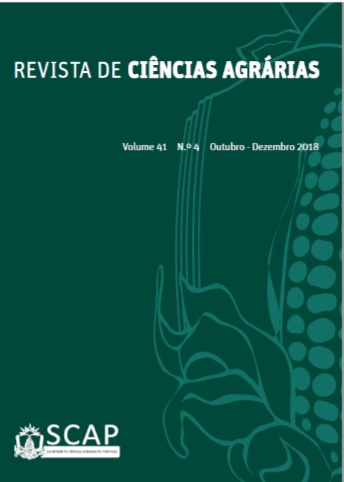Salinity in flooded rice: Agronomic characteristics and seed quality
DOI:
https://doi.org/10.19084/RCA18141Abstract
The aim of this study was to evaluate the effect of saline stress on different stages of rice development on agronomic characteristics and the physiological quality of seeds produced. Two concentrations of water salinity (16 and 12 mM) by the addition of sodium chloride were used. The experiment model used was a randomized block design arranged in a split-plot scheme, the plots consisted of different stages of rice development and the subplots consisted of two rice cultivars (IRGA 417 and BRS Bojuru) with four replications. On the basis of the results of these experiments, it can be concluded that the salinity negativelyaffects the agronomic characteristics and the physiological quality of seeds produced from the BRS Bojuru and IRGA 417 cultivars. The most critical rice stages for the yield and seed quality of rice cultivars were EM- from emergency (E) to harvest maturity (M), EAN- from emergency to anthesis (AN), and 35AN- from emergency to anthesis (AN). BRS Bojuru cultivar presents better performance against saline stress for the agronomic characteristics than for the physiological quality under the same conditions of cultivation.


